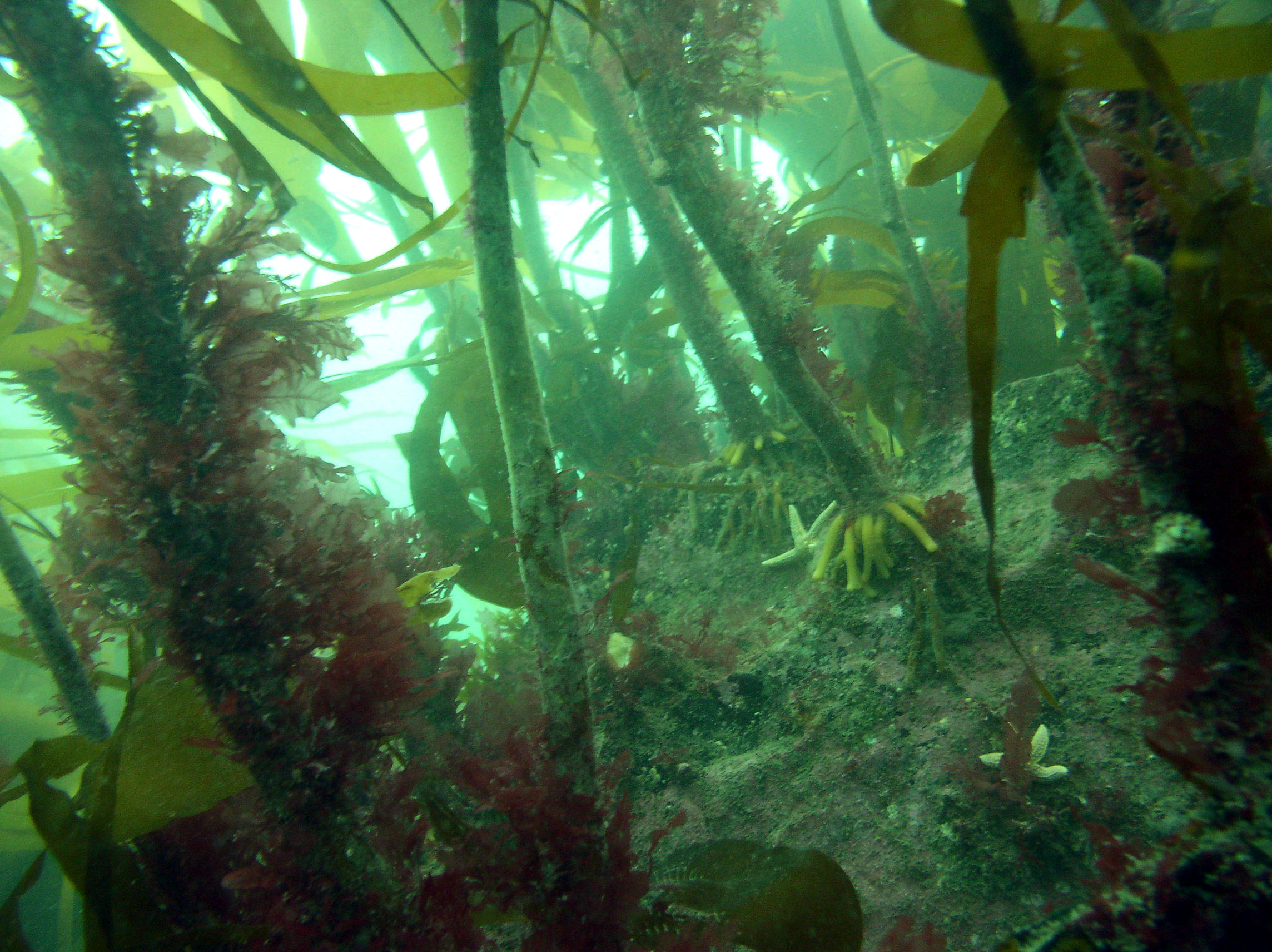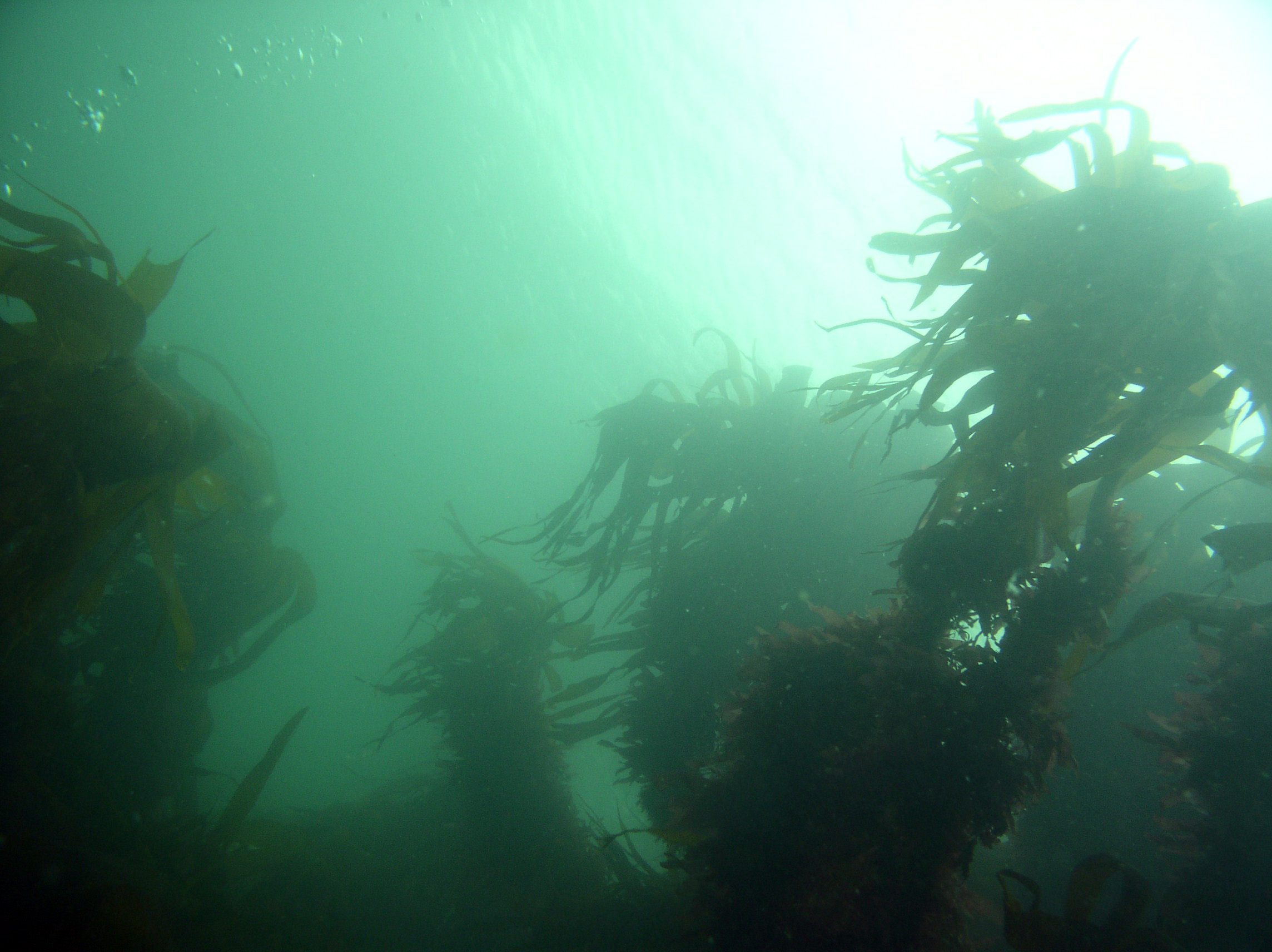Kelp is a large brown seaweed that anchors to hard rocky surfaces using a holdfast. Like all seaweeds, kelp has no roots. There are five main kelp species in Scotland’s seas adapted to a range of wave conditions from sheltered to exposed. They usually grow in dense beds in shallower waters, but can be found as deep as 30m in clear oceanic water.
Kelp beds are considered among the most productive habitats in Scottish seas. Their presence creates a complex habitat with vertical stem-like structures (stipes), and a shaded canopy of large waving leaf-like blades that provide homes, protection, nursery grounds and feeding areas for many animals, including fish, crabs, lobster, starfish, seabirds and seals.
Some kelp species thrive in exposed areas with high wave action and strong tidal movement, forming dense beds that can moderate strong currents and protect coastlines from heavy wave action.
Kelp beds are recognised as Priority Marine Features (PMFs) and there are currently four nature conservation marine protected areas (MPAs) in Scotland that provide protection for ‘kelp beds’ or ‘kelp and seaweed communities on sublittoral sediment’.
Action Needed
- Support the prevention of large-scale commercial wild kelp harvesting.
- Support research aimed at demonstrating the importance of kelp beds in supporting healthy marine ecosystems.
- Advocate the multiple nature-based solutions kelp beds can provide, such as coastal protection, job creation (e.g. marine tourism) and supporting the fishing industry.
Threats
Large-scale harvesting poses a significant threat to the health of Scotland’s kelp beds, which already face a range of other pressures, including:
- Eutrophication caused by nutrient and sediment run-off from land,
- Physical disturbance from human activity, such as bottom-trawl and dredge fishing,
- Overgrazing by invertebrate herbivores, in particular sea urchins in the absence of sufficient predators such as lobster, can create ‘barren’ grounds devoid of kelp and restrict growth of juveniles,
- Rising sea water temperatures can affect the structure, functioning, distribution and survival of kelp beds,
- Coastal development can physically disturb kelp forests and cause alterations in water flow, leading to changes in sedimentation.
MSP Nature Champion





